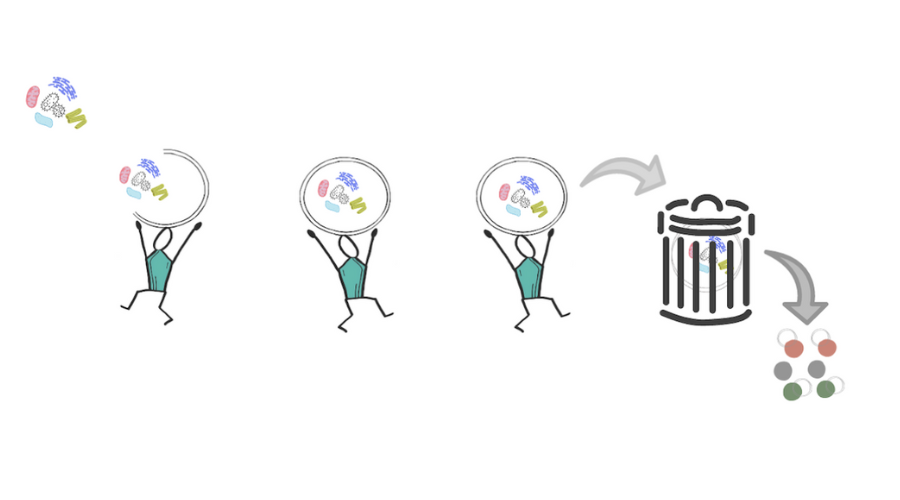Is autophagy cancer’s friend or foe? Let’s unravel the mystery together.

Autophagy brings numerous benefits. It keeps our cells healthy, possibly promotes longevity, protects us from diseases, and strengthens our immune system. But when it comes to its role in cancer, it’s like a puzzle with missing pieces, and researchers are trying to figure it out.
Before we explore this mystery, let’s understand what autophagy really is.
Autophagy is derived from the Greek word meaning “self-eating.” This fundamental process is crucial for maintaining the health of our body cells. Think of it as the body’s cleaning crew, which makes sure the cells stay clean and healthy. Whenever the body cells accumulate unnecessary or damaged materials, autophagy comes into action to efficiently remove them.
Here’s how it works
First, it identifies the cellular parts that need to be removed. Then, it wraps them up in a circular membrane-like structure called an autophagosome. The formation of autophagosome is critical because the whole process can’t proceed without it.
Next, the autophagosome, with its cargo of cellular parts, merges with the lysosome, which is like the cell’s waste disposal unit. Inside the lysosome, there are enzymes that break down the contents of the autophagosome and subsequently transform them into reusable materials that the cell can use for energy and building.

How does autophagy help us?
Autophagy does more than just clean up our cells. Research suggests it promotes a longer, healthier life by eliminating old, harmful, and damaged cellular parts. As such, it reduces the risk of developing age-related diseases.
Autophagy also boosts our immune system and helps us fight off infections. Plus, it plays a role in keeping our metabolism in check, which can prevent conditions like diabetes and obesity.
What about autophagy’s role in cancer?
Autophagy’s role in cancer is not straightforward. On one hand, it helps stop the growth of tumors and prevents cancer. But on the other hand, it can sometimes do the opposite and help cancer cells survive and spread. So, it’s like having a superhero with a double-edged sword.
Let’s delve into this duality of autophagy.
Autophagy’s role in stopping cancer
Researchers have uncovered various mechanisms through which autophagy protects against cancer.
At the core of this protective mechanism involves the BECN1 gene, also known as Beclin 1. BECN1 functions as a tumor suppressor. When this gene is compromised or depleted, it leads to a decrease in autophagy. This can cause cells to multiply too quickly, which is a warning sign for cancer. The lower levels of Beclin 1 are often observed in various cancer types, including breast, prostate, ovarian, cervical, and liver cancers.
Besides Beclin 1, other genes, such as UVRAG and Bif-1, also contribute to autophagy and join the ranks of tumor suppressors. In cases where these genes are weakened or absent, cancer cells thrive and multiply rapidly, especially in colon, gastric, breast, and prostate cancers.
Similarly, in studies with mice, when researchers removed core autophagy proteins like ATG5 and ATG7, the mice developed liver cancers. This happens because damaged cell parts accumulate due to impaired autophagy.
Moreover, autophagy acts as a safeguard by regulating the levels of reactive oxygen species (ROS). These species are known to promote cancer when present in excess. So, when autophagy doesn’t work properly, it can result in heightened ROS levels. This makes cells more susceptible to develop cancer.
All these facts strongly suggest that autophagy plays a crucial role in stopping cancer initiation.
Autophagy’s role in promoting cancer
Research has shown that autophagy helps cancer cells grow and survive in two main ways: by reducing stress for the tumor cells and by providing them with the energy they need to grow.
Tumors in their advanced stages face extreme challenges like low oxygen levels and nutrient shortages. Autophagy becomes their ally by helping tumor cells adapt to these harsh conditions. When researchers interfere with autophagy, for instance, by removing the Beclin 1 gene mentioned above, it weakens cancer cells, making them more prone to die. In essence, autophagy acts as a stress reliever for tumors.
Autophagy goes beyond stress relief. It also functions as a recycling system for tumors. It breaks down old or unnecessary cellular components and repurposes them to provide the energy needed for cancer cells to keep multiplying. When autophagy doesn’t work properly, as observed in lab animals, it causes metabolic stress. Such stress inhibits the survival of cells. This highlights how autophagy contributes to tumor growth by providing the essential nutrients needed for the cancer cells to flourish.
Can autophagy be used to treat cancer?
The question of whether we can use autophagy to treat cancer is a hot topic in research. Some studies propose that we could potentially modify autophagy to our advantage in therapy. One approach is to boost it to prompt cancer cells to destroy themselves. Another way is to slow it down to protect healthy cells during cancer treatment.
However, the role of autophagy in cancer is pretty complex. So, we need more research to fully understand this complex process and how to use it effectively against cancer. Researchers are working hard on this and trying to identify better ways to make cancer treatments work well without hurting healthy cells.
In the end, autophagy is a bit of a mystery. It’s important for our health, but its role in cancer isn’t entirely clear. Scientists are working hard to figure it out and improve its role in cancer treatments. So, while we’re still learning about this complex process, ongoing research offers hope for using autophagy as a useful tool to combat cancer.

